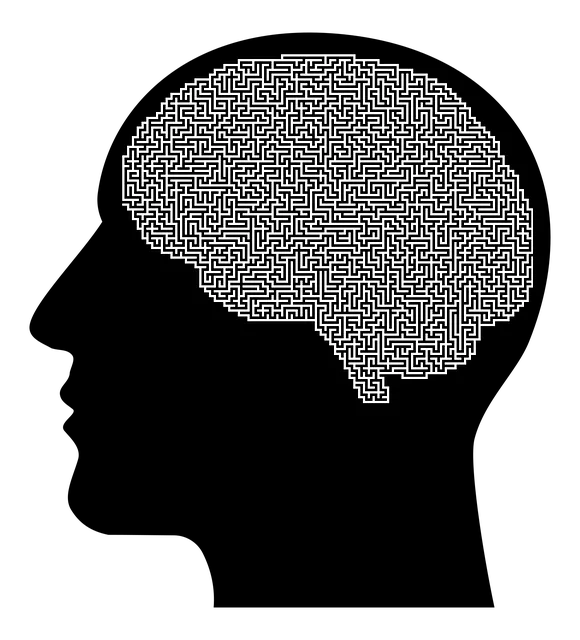Aurora Kaiser Permanente's behavioral health providers utilize the RFM (Relational, Functional, Mindfulness) framework to transform patient care, offering a holistic approach to resilience building. This model integrates emotional intelligence, social skills, and tailored interventions to empower individuals with coping mechanisms for life challenges. Comprehensive resilience training programs include cognitive reframing, mindfulness practices, and self-care routines, fostering adaptability and emotional regulation. RFM exercises, implemented through structured steps and ongoing support, are data-driven, allowing for continuous improvement in client outcomes and maintaining Aurora Kaiser Permanente's reputation for innovative behavioral health services.
“In the realm of behavioral health, understanding and fostering resilience is a game-changer. This article explores the power of RFM (Recovery, Flexibility, and Mastery) exercises in enhancing resilience, drawing from the successful implementation at Aurora Kaiser Permanente. We’ll delve into how their approach transforms lives, guiding readers through effective training programs and practical steps for implementation. From defining key components to measuring success, this comprehensive guide empowers behavioral health providers to empower others on their journey.”
- Understanding RFM and Its Relevance in Behavioral Health
- Aurora Kaiser Permanente's Approach to Resilience Building
- Key Components of Effective Resilience Training Programs
- Implementing RFM Exercises: A Step-by-Step Guide
- Measuring Success and Continuous Improvement
Understanding RFM and Its Relevance in Behavioral Health

At Aurora Kaiser Permanente, behavioral health providers are increasingly turning to RFM (Relational, Functional, and Mindfulness) as a powerful framework to enhance patient care. This approach goes beyond traditional therapy methods by focusing on three key dimensions of human experience: relational, functional, and mindfulness. By integrating these concepts, RFM fosters a holistic understanding of individuals’ emotional regulation, conflict resolution techniques, and overall well-being.
The relevance of RFM in behavioral health lies in its ability to address the complex interplay between personal relationships, daily functioning, and mental illness stigma reduction efforts. Aurora Kaiser Permanente’s behavioral health providers utilize RFM exercises to help patients cultivate stronger connections with themselves and others, improve coping strategies, and navigate life challenges more effectively. This tailored approach contributes to improved outcomes, fostering resilience and a deeper sense of emotional well-being among the community served by Aurora Kaiser Permanente.
Aurora Kaiser Permanente's Approach to Resilience Building

Aurora Kaiser Permanente takes a holistic approach to resilience building, recognizing that emotional intelligence and strong social skills are key components in fostering adaptability and mental well-being. Their behavioral health providers integrate these concepts into their practices by incorporating tailored interventions designed to enhance clients’ ability to navigate life’s challenges. This includes teaching effective stress management techniques, promoting self-awareness, and facilitating meaningful connections with others, all of which contribute to a robust resilience framework.
Through this comprehensive strategy, Aurora Kaiser Permanente empowers individuals to build emotional resilience, enabling them to cope with adversity more effectively. Their behavioral health services focus on empowering folks with the tools they need to thrive in the face of stress, trauma, or other mental health challenges, ultimately enhancing their overall quality of life.
Key Components of Effective Resilience Training Programs

Resilience training programs are designed to equip individuals with the tools and strategies needed to navigate life’s challenges and maintain emotional well-being. When curated by experienced professionals, such as those at Aurora Kaiser Permanente behavioral health providers, these programs become powerful resources for personal growth. Key components of effective resilience training often include a combination of cognitive reframing techniques, mindfulness practices, and emotional regulation skills.
Cognitive reframing encourages individuals to challenge negative thought patterns and replace them with more adaptive perspectives. Mindfulness practices, such as meditation and deep breathing exercises, help participants cultivate present-moment awareness, reducing reactive behaviors and increasing emotional balance. Additionally, teaching stress reduction methods and fostering self-care routine development are vital aspects that support long-term mental health and resilience. Through these comprehensive approaches, healthcare providers like Aurora Kaiser Permanente aim to empower individuals to build a robust psychological foundation, enabling them to thrive in the face of adversity.
Implementing RFM Exercises: A Step-by-Step Guide

Implementing RFM (Resilience, Flexibility, and Mastery) exercises is a powerful way for Aurora Kaiser Permanente behavioral health providers to support their clients’ mental well-being and overall resilience. This step-by-step guide aims to streamline the process, ensuring an effective integration of RFM into clinical practice.
First, introduce RFM concepts during intake or initial assessments, explaining its benefits in fostering adaptability and emotional regulation. Next, tailor exercises to individual needs, considering cultural sensitivity in mental healthcare practice. Aurora Kaiser Permanente’s behavioral health providers can offer a range of activities, from mindfulness practices to cognitive reframing techniques and physical movement routines. Regularly schedule these sessions, allowing for consistent progress. Additionally, encourage clients to maintain a journal to track their experiences and reflections, fostering inner strength development. Provide ongoing support and guidance, ensuring the exercises remain relevant and beneficial throughout the client’s journey. Enhance cultural competency through training programs that equip healthcare providers with the skills to address diverse patient needs, creating a safe and inclusive environment for all.
Measuring Success and Continuous Improvement

Measuring Success and Continuous Improvement play a pivotal role in the effective implementation of RFM (Resilience, Flexibility, and Mindfulness) exercises at Aurora Kaiser Permanente, particularly within its behavioral health services. Behavioral health providers utilize various metrics to assess client progress, ensuring that interventions are tailored to individual needs. This data-driven approach allows for precise adjustments in the Emotional Healing Processes, fostering more effective Mood Management strategies.
Regular evaluation enables healthcare professionals to gauge the impact of RFM programs on Mental Health Awareness and overall well-being. Through ongoing assessment, they can identify areas requiring enhancement, incorporate new techniques, and adapt their practices. This continuous improvement cycle is essential for optimizing client outcomes and ensuring that Aurora Kaiser Permanente remains at the forefront in providing compassionate and innovative behavioral health services.
The implementation of RFM (Resilience, Flexibility, and Mastery) exercises, as exemplified by Aurora Kaiser Permanente’s successful approach in behavioral health, offers a powerful tool for enhancing resilience among healthcare providers. By integrating key components into training programs and following a structured guide, behavioral health professionals can significantly improve their ability to navigate challenges and support patients effectively. Continuous measurement of success and adaptability ensure that these programs remain relevant and impactful, fostering a resilient workforce within the sector.






